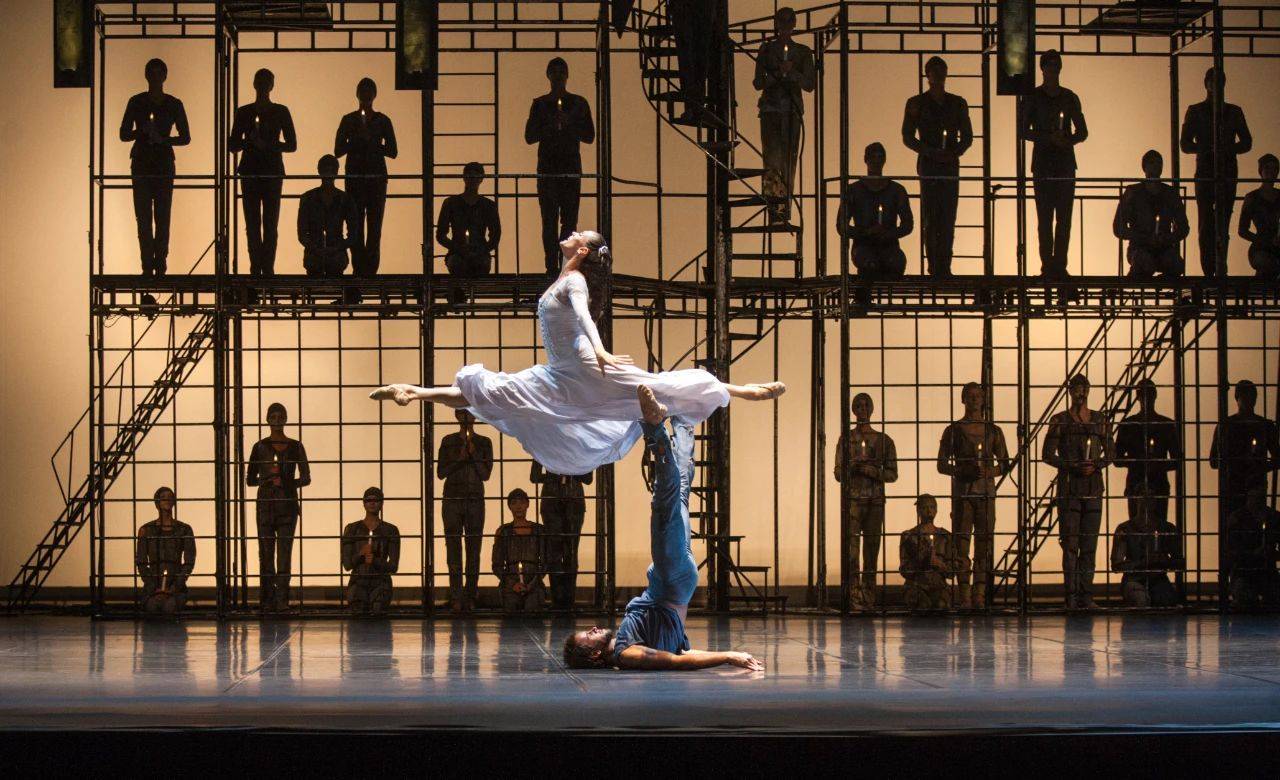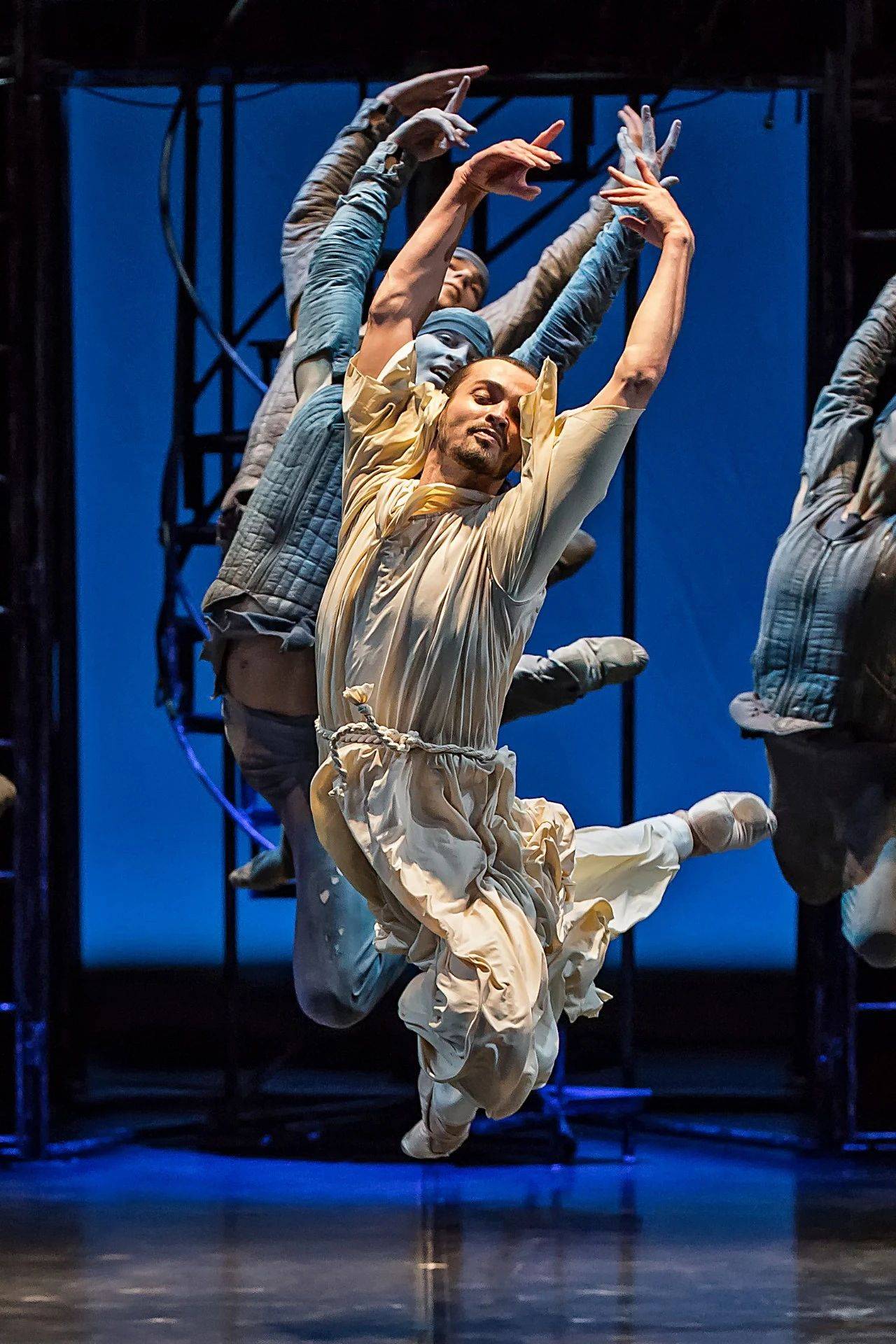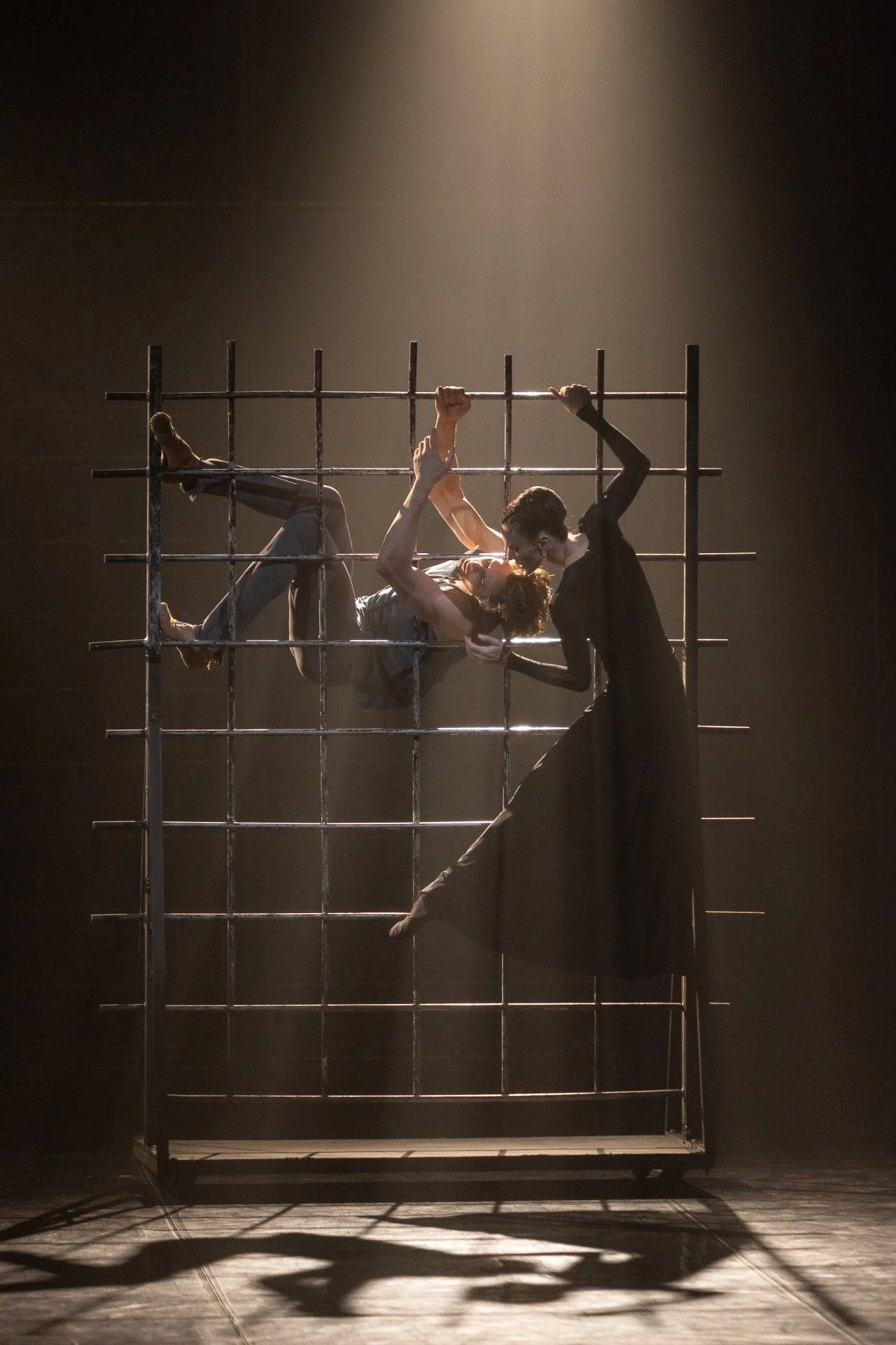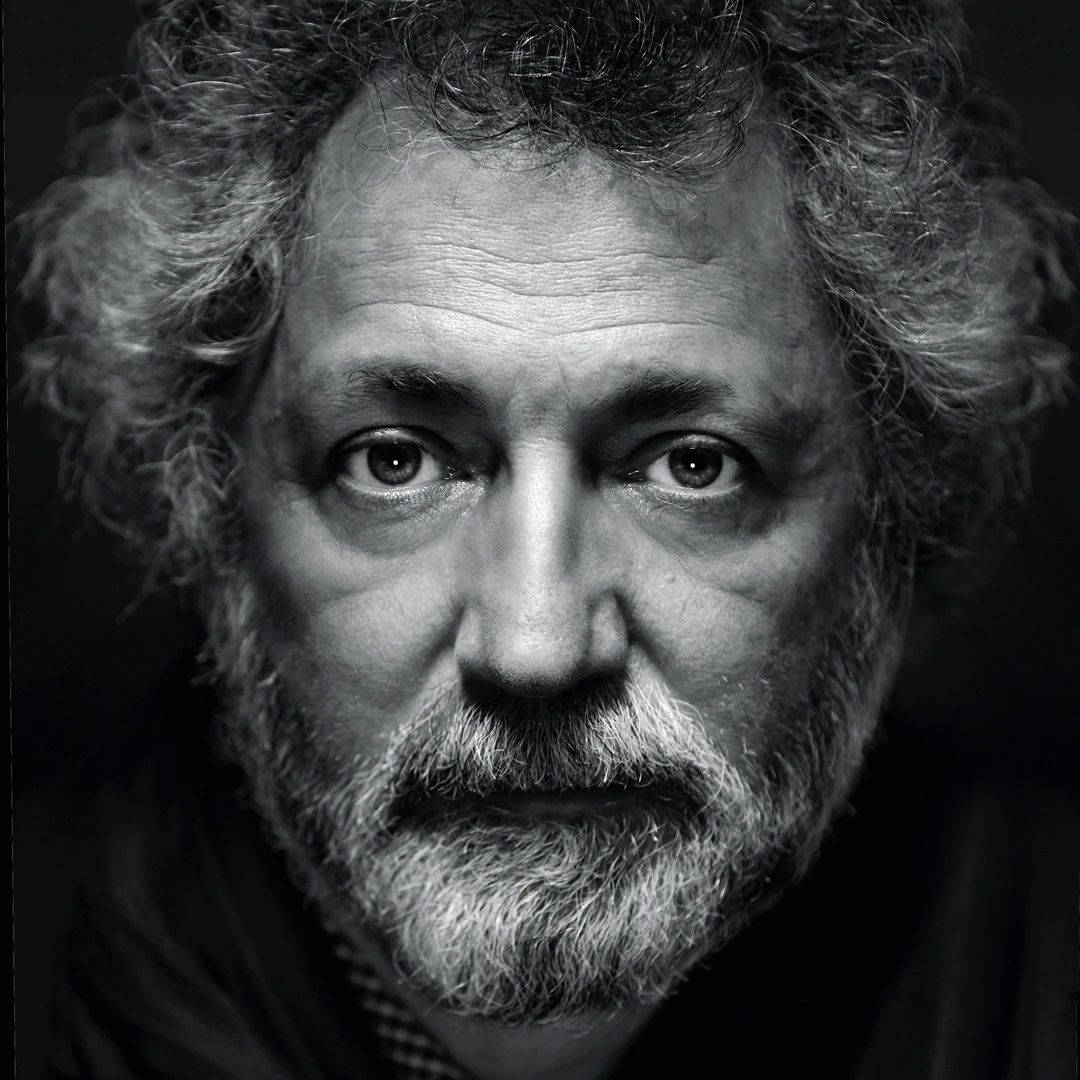
Eifman Ballet of St. Petersburg: Beyond Sin
Venue:
Shanghai Oriental Art Center - Opera Hall
425 Dingxiang Road Pudong Shanghai
Date:
11/22/2025 - 11/23/2025
This ticket is only available as a paper ticket

Eifman Ballet of St. Petersburg: Beyond Sin
11/22/2025 - 11/23/2025
Shanghai Oriental Art Center - Opera Hall
425 Dingxiang Road Pudong Shanghai
¥280 - ¥1080
Paper ticket
Event details
👉 Receive Tickets via Express Delivery in 7 Working Days
👉 Children Under 1m Are Not Allowed to Enter
👉 All Attendees Require a Ticket
👉 No Cancellation
A ballet by Boris Eifman
Based on The Brothers Karamazov
Based on The Brothers Karamazov
novel by Fyodor Dostoyevsky
Music: Sergei Rachmaninoff, Richard Wagner, Modest Mussorgsky
Sets and costumes: Vyacheslav Okunev
Light: Boris Eifman
Premiere: April 29, 2013
Running time: 2 hours, with one interval

“Human being is a mystery. It needs to be unraveled, and if you spend your whole life unravelling it, don’t say that you’ve wasted time. I am studying that mystery because I want to be a human being.” These words of Fyodor Dostoevsky perfectly match the description of the creative path of Boris Eifman, who in each of his works intently and earnestly studies the most complicated aspects of spiritual life.
The Beyond Sin ballet is a new choreographic interpretation of Dostoevsky’s novel The Brothers Karamazov. By having fundamentally re-thought and re-worked his own earlier world-renowned 1995 production The Karamazovs, also based on this timeless masterpiece of Russian literature, Boris Eifman created a psychodrama, rich in thought and emotion.
In terms of both artistic expression and the technical solution, Beyond Sin is a modern stage creation, which broaches age-old “accursed” questions. In the context of the almost universal values crisis of the early XXI century, the choreographer turned to the non-negotiable, secure ethical foundations and staged a ballet that explored issues of theomachy and God-seeking, of faithlessness and faith, of the nature of sin and of spiritual salvation.


Synopsis
Act 1
For all the multitude of differences which divide them, Dmitri, Ivan and Alyosha are linked to each other by invisible threads: the “stinking, sinful” blood of their father, Fyodor Pavlovich Karamazov, runs in their veins. The monk Alyosha tries in vain to soften the impact of passions which have got out of hand. He is an observer of the bitter rivalry between his father and brother Dmitri for the favors of Grushenka, of his father’s constant drunken orgies, of his willingness to entangle everyone in the sin of lust.
A series of scandals is replaced by rare moments of peace, in that the brothers’ hearts are filled with the penetrating image of their mother, but then hostility erupts with renewed force. But not only is Alyosha incapable of helping his nearest and dearest, he too discovers within himself to an increasing degree the despicable traits of “Karamazovshchina”.
The whole family is drawn into the battle for Grushenka between Fyodor Pavlovich and Dmitri. Fyodor Pavlovich is killed... and Dmitri is accused of his father’s murder.
Act 2
Ivan and Alyosha argue endlessly about the meaning of existence and about human soul. Their argument is visualized through the figures of the Grand Inquisitor and Jesus Christ, who has returned to sinful earth, in a tale composed by Ivan. What is good for people – servile obedience, as Ivan the Inquisitor asserts, or free heart and free spirit, which upholds Alyosha as Christ?
Grushenka, full of remorse and seeking purification through sacrifice, visits Dmitri in prison. Convicted despite being innocent, he is suffering from separation with his beloved.
Ivan is torn by pangs of conscience: he blames himself for harboring a wish to kill his father. In his mind reality and fantasy become one.
Ivan and Alyosha come to visit Dmitri. Only here, behind prison bars, the brothers recognize their kinship.
Dmitri dreams about his wedding with Grushenka, but he is not able to embrace her and is ruthlessly awakened.
Alyosha is unable to watch human suffering and, driven by love for his fellow men, he frees the convicts incarcerated in “The House of the Dead”. Their heads reeling from the sense of impunity from law, the convicts destroy everything in their path.
The family comes to a dreadful end: Fyodor Pavlovich is murdered, Dmitri is in jail, Ivan goes insane, Alyosha is responsible for the fate of many innocent victims... But, however wicked a man may be, he may repent and be saved.

Boris Eifman

Eifman Ballet of St. Petersburg
Eifman Ballet of St. Petersburg was established by Boris Eifman in 1977 (the original name of the company was Leningrad New Ballet). The concept of the New Ballet was above and beyond innovative for its time: from the very beginning the vision was to develop it as an experimental laboratory, a ballet theatre of one choreographer.
The Company’s first performances, such as Two-Voice and Boomerang, had immediate success and prompted both strong interest of the audience and a lively discussion among ballet critics who recognised the development of a new trend in Russian ballet art. However, proponents of the traditional ballet school were rather reluctant to acknowledge the young choreographer’s influence. The novelty of Eifman’s approach to choice of literary basis and music for his productions, as well as the audacity of the body movement vocabulary earned him the reputation of a “dissident in choreography” that stayed with Eifman for a long time.
In the late 1970s – early 1980s the Company developed its own approach to shaping of the repertoire. The playbill included a growing number of productions based on the gems of classical literature. The choreographer worked with his company, noted for their dance intellect, to explore new genres. New productions: The Idiot, The Mad Day, or The Marriage of Figaro, The Legend, Twelfth Night, or What You Will, The Duel, The Master and Margarita, The Murderers and others – were distinguished by strikingly sharp choreographic patterns which aimed to express the height of passion experienced by the ballets’ characters.
Today ballet enthusiasts in Europe, Asia, the Americas and Australia admire productions of the Eifman Ballet of St. Petersburg: Red Giselle, Russian Hamlet, Anna Karenina, Eugene Onegin, Rodin, Her Eternal Idol, Beyond Sin, Requiem, Up & Down, Tchaikovsky. PRO et CONTRA, The Pygmalion Effect, Molière Passion, or The Mask of Don Juan, The Seagull. A Ballet Story. These widely acclaimed works not only represent the highest level of artistic achievement in Russian contemporary ballet but also introduce international audiences to the spiritual heritage of Russia and the best of world culture – the inspiration behind the work of the choreographer and his dancers. For several decades Eifman Ballet enjoyed success when performing in top venues across the globe. The Company’s ability to immerse their audiences into the boundless world of human passion, to build a strong spiritual bond, to amaze and sometimes overwhelm them by the intensity and energy of its plastique, defined and ensured its recognition.
Notice
Date:
Saturday, 22nd Nov. @ 19:15
Sunday, 23rd Nov. @ 14:00
Price: 280/380/580/880/1080

Follow our WeChat for event news, deals, gossip and more!
Book Now
Eifman Ballet of St. Petersburg: Beyond Sin
Venue:
Shanghai Oriental Art Center - Opera Hall
425 Dingxiang Road Pudong Shanghai
Date:
11/22/2025 - 11/23/2025
This ticket is only available as a paper ticket
© 247tickets 2020 沪ICP备19024898号-2

 Add us on WeChat to speak to our friendly customer service team! ID: love247tickets
Add us on WeChat to speak to our friendly customer service team! ID: love247tickets